Created in partnership with the , these short videos help teach children about the importance of budgeting, saving, and spending wisely, which can lead to increased financial literacy and more responsible financial habits later in life.
Why do children need to learn about money management?
Teaching children about money management from an early age helps them develop a sense of financial responsibility. Compared to previous generations, children have a greater exposure to digital devices, online platforms, and electronic payment systems. This may influence their understanding of money and the way they manage it.
For example, the prevalence of digital payments means children may have limited exposure to handling and managing cash, which could affect their understanding of its value. They may encounter new types of spending decisions and face challenges in distinguishing between needs and wants. This might include in-game and in-app purchases, which can create a sense of immediate reward, and make it challenging for children to think critically about their spending decisions.
The videos have been created using the and are designed to help teachers deliver financial education in primary schools. Each video addresses key learning outcomes from the framework ÔÇô these are detailed on each video page.
Videos 1 (Money and how we pay for things) and 2 (Spending versus saving, and needs versus wants) in the series are primarily aimed at 5-7 year-olds (KS1) but may also be suitable for older children. Videos 3-8 are aimed at 7-11 year olds (KS2).
The videos
1. Money and how we pay for things: bartering to online banking. video
This video explains how the ways that we pay for goods and services has changed over time.
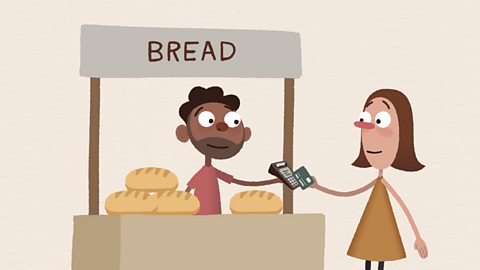
2. Spending versus saving, and needs versus wants video
This video looks at how we have choices to make about how we spend and save our money.
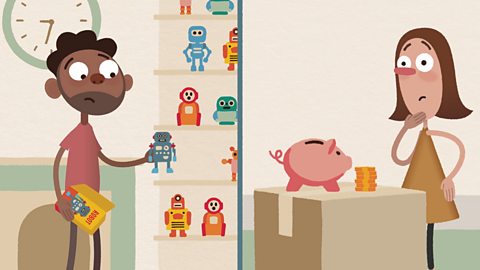
3. Influencers: how they can affect our spending. video
Spending money can be influenced by other people, including friends and online influencers.
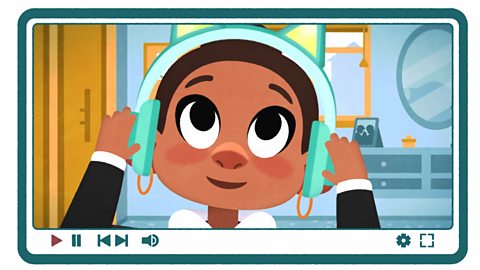
4. Helping others through actions, donations and spending. video
The impacts of helping others (by sharing, donating money or certain purchasing choices).
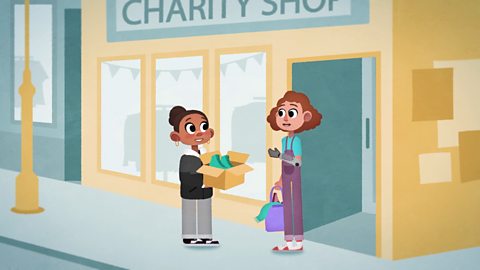
5. Keeping track of spending and savings: being wiser with my money. video
Keeping a record of what we spend and save helps us to stay in control of our money.
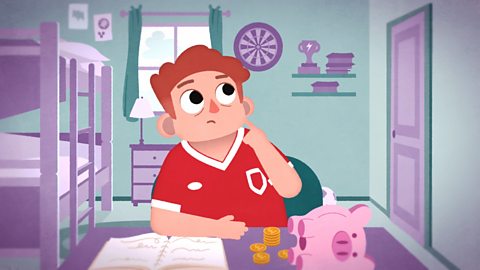
6. Advertising: how it can affect my buying choices. video
Advertisements can influence the decisions we make about how to spend our money.
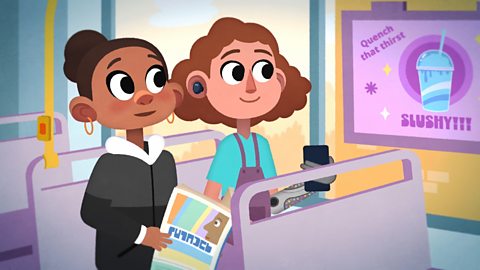
7. Gaming payment models. video
A look at gaming payment models: subscription, upfront and in-game purchases.
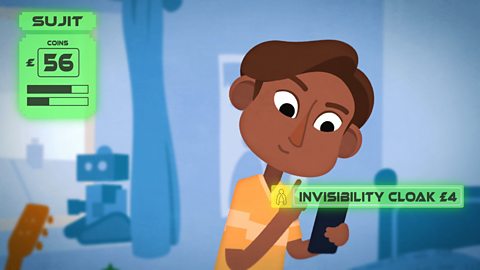
8. Online scams: protecting my money and personal details. video
A look at online scams ÔÇô online scammers might appear to be connected to someone we know, but always check with the person offline to be sure.
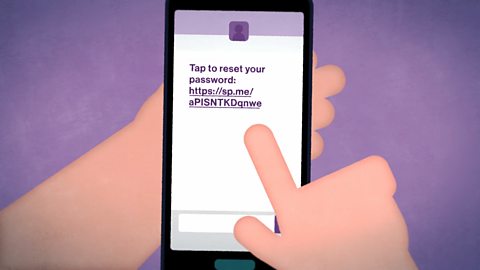
9. Saving and borrowing: the costs and benefits of interest. video
Interest is money which can be added to the money that we save or borrow.
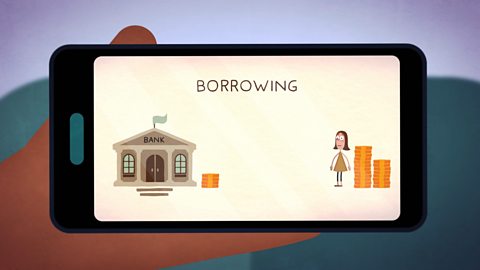
10. Jobs: the link between work and money. video
We can earn money by having a job and different jobs pay different amounts.
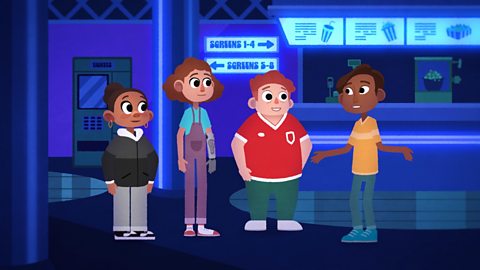
Where next?
Super Movers ÔÇô KS1 Maths: Money. video
This song is a great way to introduce or recap the topic of money including coins, pennies and pounds and will get pupils energised.

Bitesize ÔÇô KS2 Maths. revision-guide
6 guides on the topic of money
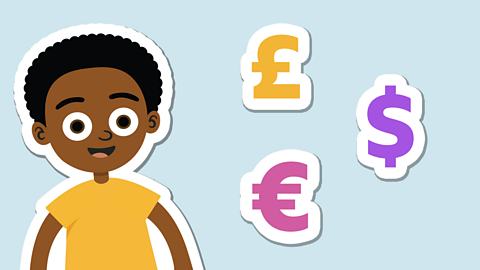
Newsround
Cash or card: How do you like to spend your pocket money?
